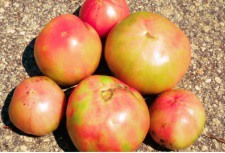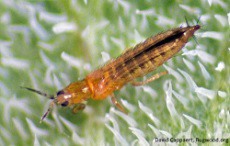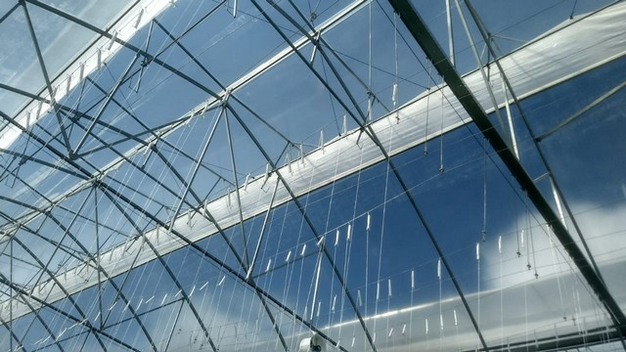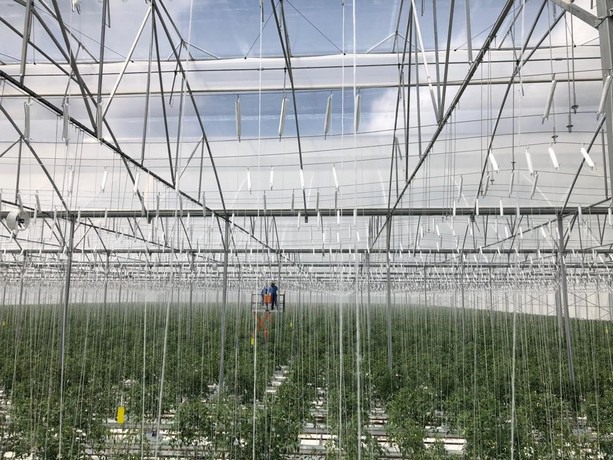 Invasive biology of Thrips (Thripidae) has recently increased their importance as agricultural pests of ornamental plants, vegetables, and fruit crops globally. They successfully invaded many countries bringing damages on fields, plantations and greenhouse crops.
Invasive biology of Thrips (Thripidae) has recently increased their importance as agricultural pests of ornamental plants, vegetables, and fruit crops globally. They successfully invaded many countries bringing damages on fields, plantations and greenhouse crops.
Its invasiveness is mostly attributed to international trade of fruits, flowers, and plant propagation material. Small sizes and cryptic habits, behavior (eggs deep in leaf tissue, feeding deep in flowers or new growths, pupal stages in areas not targeted for pesticide application) as well as quick resistance development make them particularly difficult to detect and control.
Thrips affect commercial production of different crops mostly through direct damages caused by direct feeding or transmission of destructive virus pathogens. The losses in yield and market quality depend on crop type, growing management, thrip species, etc., and it can range from minor yield losses to complete crop destruction due to virus attacks vectored by thrips.
 For example, F. Occidentalis (greenhouse thrip) is the most important insect pests of greenhouse crops worldwide. It is highly polyphagous species with more than 250 plants listed as feeding hosts. Even if it is present in production for long time, it is still not eradicated and estimated damages (direct or indirect) all over the world in crop production are passing billion dollars yearly.
For example, F. Occidentalis (greenhouse thrip) is the most important insect pests of greenhouse crops worldwide. It is highly polyphagous species with more than 250 plants listed as feeding hosts. Even if it is present in production for long time, it is still not eradicated and estimated damages (direct or indirect) all over the world in crop production are passing billion dollars yearly.
Growers now realize how important the right insect screens are to the resilience, health, and balance of crops!
The use of insect screens is simple biological solution for thrips exclusion in greenhouse production. "If we consider extensive crop damages, knowledge of crop biology, habits and the emergence of epidemics that require intense insecticides treatment which lead to resistance development, insect screening becomes important part of integrated management and IPM procedures," the team with Arrigoni says.

The exclusion effect of Arrigoni insect screens is based on the ideal structure density, hole size and sewing consistency. "The penetration capacity of thrips is very high due to very small size dimensions and screens require excellent structure with very small hole size. On the other side, every reduction in hole size is followed by lower air exchange, temperature, and humidity rise, especially in hot summer days. In conditions of low air exchange, the ratio CO2/O2 change and affect the most basic plant functions like photosynthesis and rooting," the specialists explain.

To create more comfortable microclimatic conditions and an efficient insect screen that provide maximum exclusion efficiency against the target pest, the company developed the new advanced Air Plus line of Biorete screens.
"Production of new thin yarns in extremely high strength allowed us to improve the screen structure and achieve better geometrical performance with different benefits," they show. "The reduced hole size (0.17x0.15 mm) increased exclusion percentage (99%) and the improved hole 3D geometrical shape significantly raised the control level."
Thanks to the use of a higher number of thinner yarn in high strength and uniformity of weaving, more structured, stable and uniform screens were provided. More holes per m2 of screen improved the porosity and increased air passage in the protected ambient (22%). At the same time, exceptional quality of raw materials and UV stabilization provide long life and smart investment.
For more information:
Via Monte Prato 3
22029 Uggiate Trevano (CO)
+39 031 803200
solutions@arrigoni.it
https://www.arrigoni.it/

